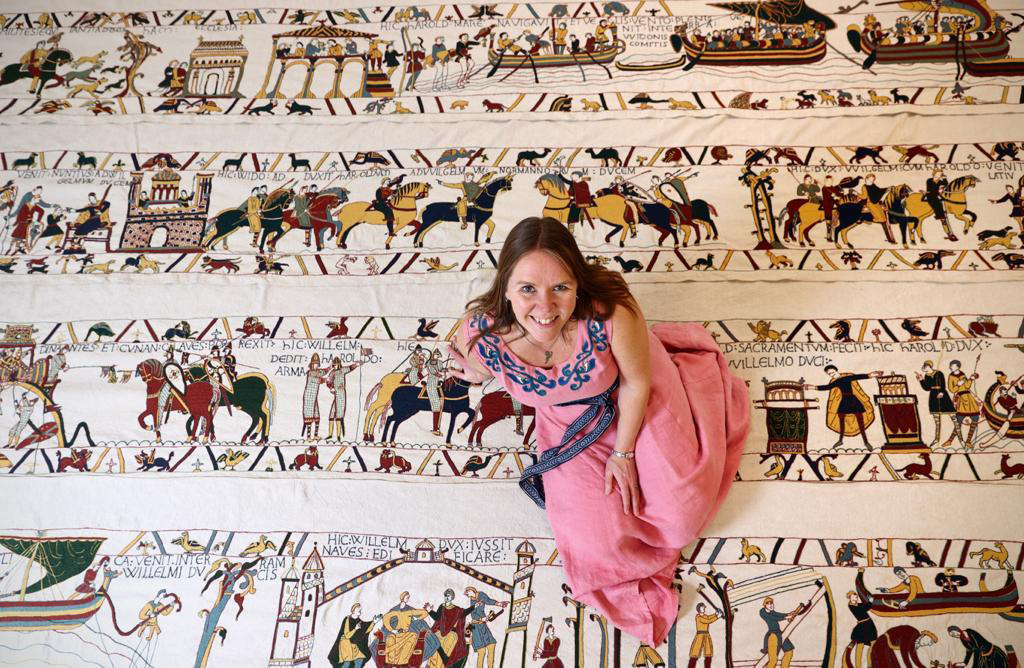Curled up on her sofa in the east of England, former teacher Mia Hansson carefully adds another stitch to her life-size reproduction of the world-famous Bayeux Tapestry. Swedish-born Hansson began the project in 2016, working for several hours a day to reproduce the epic 70-metre (230-foot) embroidery of William the Conqueror's invasion of England.
"I had nothing to do and I was really, really bored so I thought I needed a project that I can't finish in a hurry, and what's bigger than the Bayeux Tapestry?" Hansson, 47, told AFP at her home in Wisbech, Cambridgeshire. The nearly 1,000-year-old original is a symbol of the frequently tempestuous relations between the UK and the European mainland.
Hansson, who has lived in Britain for more than 20 years, has been working on her version for three to four hours a day for the last five-and-a-half years.
In January, she reached the halfway mark. She must keep her work rolled up as her house isn't big enough to unfurl it, and knows the tapestry so intimately that she even knows the little mistakes made by the original creators.
"Look here for example: you can see four soldiers' heads but only four legs, something is wrong!" she said. "But who am I to correct what they did?"
8,000 metres of wool
The 11th-century embroidery tells the story of events leading up to William the Conqueror's Norman conquest of England, culminating with King Harold Godwinson's death at the Battle of Hastings in 1066. The tapestry, believed to have been made in England, was recognised by UNESCO in 2007 as a "Memory of the World".
Today it is housed in a museum in the town of Bayeux, in the Normandy region of northwestern France. There is talk of the original visiting Britain on loan, but not before a full restoration, currently set for late 2024 and due to take at least 18 months. Hansson said she was not much interested in the history when she began the project, but stitching the 626 characters has made her an expert.
"You have everything -- you have birds and dragons, camels, horses, ships, buildings... and nothing is ever the same," she says. "Even if there's two horses, they're not going to be the same. There will never be a repeat." Hansson is using seven different colours of wool on a linen base.
"If I remember correctly I calculated about 8,000 metres of wool in total," she said. She's given herself another five years -- until July 13, 2027 -- to finish the project, or a total of 11 years to the day after she began. "As far as I know, there's nobody else in Europe" who has reproduced the tapestry, she said, although Hansson heard of someone in Canada taking 10 years to make one.
Once hers is completed, Hansson says she might sell the work, noting that her husband has been working to support her obsession. "It would be nice if it paid for itself so I can put my feet up," she said. "If someone gives me an offer I can't refuse, that's fine." — AFP













